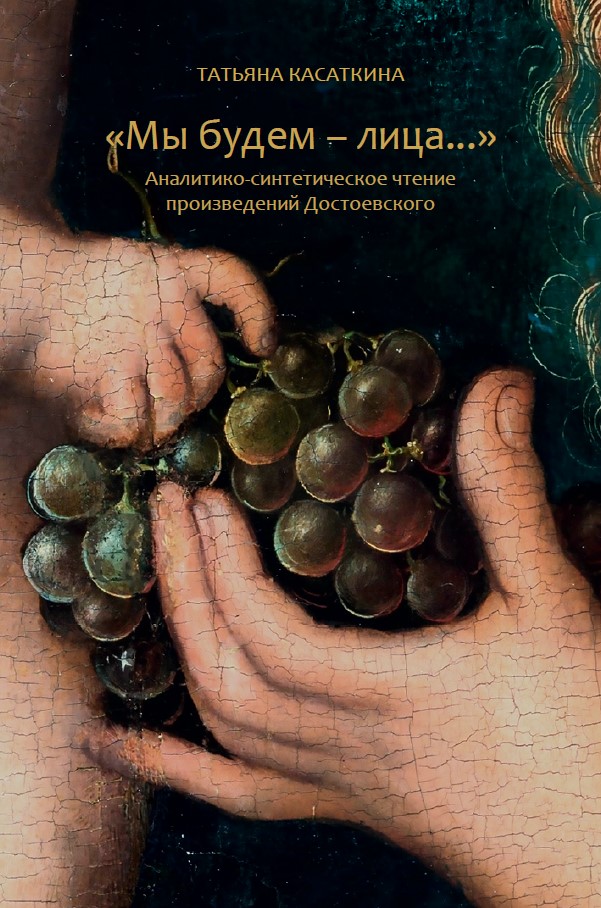Information about the author:
Tatyana A. Kasatkina
Tatiana A. Kasatkina, DSc in Philology, Director of Research, Head of the Research Centre “Dostoevsky and World Culture”, A.M. Gorky Institute of World Literature of the Russian Academy of Sciences, Povarskaya 25A, bld. 1, 121069 Moscow, Russia.
https://orcid.org/0000-0002-0875-067X
E-mail:
Information about the ex. editor:
Tatiana G. Magaril-Il’iaeva
Tatiana G. Magaril-Il’iaeva, Associate Researcher, Research Centre “Dostoevsky and World Culture”, A.M. Gorky Institute of World Literature of the Russian Academy of Sciences, Povarskaya 25 a, 121069 Moscow, Russia.
ORCID ID: https://orcid.org/0000-0001-7521-1898
E-mail:
Abstract:
The book is dedicated to the guiding principle of the study of both literary and biographical texts, as well as the principles of commenting on the works of such an author, who can be defined as a practical philosopher and theologian and who creates his texts in order to narrate his path to transfiguration and lead the reader through it. Unraveling the mystery of man, Dostoevsky finds the solution to it in the fact that contemporary man radically misunderstands his own dimension, size, composition, and configuration. He sees himself as body-limited, separated from other individuals, and looks at them as rivals and contenders for the same resource, instead of understanding that they carry new spaces and possibilities that cannot exist without them and outside them. Consequently, he is radically mistaken in defining what is good for him and what are the dangers he can encounter on the way; he is often inclined to consider the biggest danger as good for him, and what is best for him as something that interferes with his interests. The book is meant for readers who love Dostoevsky, as well as philologists, philosophers, and theologians.
Keywords: Dostoevsky, biography, commentary, two-folded image, theology, anthropology, human nature, theology of sin, Gnostic paradigm, European religious painting, eschatology, biblical quotation, time, art, memory, fantastic, dream as a principle of text organization, Eleusinian mysteries, Schiller, Odoevsky, Block, Pushkin, Mandelstam, Tolstoy, Boratynsky.



